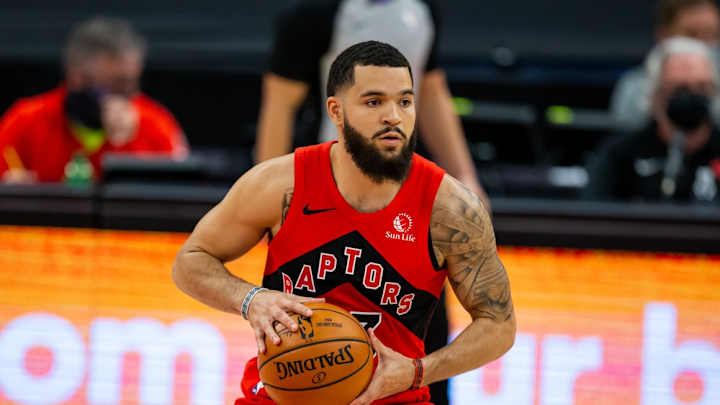Raptors Players Dealing With Mental Difficulties of Pandemic Life

Media Zoom calls with NBA players tend to take on a bit of a rhythm. The team's PR moderator will call on a media member to ask a question and that reporter will almost always start with the kind of pre-question question most conversations begin with.
"Hey, how's it going?"
It's not a real question, per se, more of a 'thanks for doing this,' if you will, before a segue into whatever larger question the reporter is looking to get some information on. Why, for example, are the Toronto Raptors 7 and 11 at the quarter mark of the season? But on a day like today, January 28th, on Bell Let's Talk Day, a day meant to bring awareness to mental illness, it might be worth lingering on that question.
Hey, Fred, how are you?
“I’m good, man," VanVleet said when I asked him Thursday afternoon. "Like I said before, there are good days and bad days. I have my share of bad days just like everybody else."
It's tough to see the world's best athletes as real people. They're more athletic, stronger, and talented than the overwhelming majority of the population. They can do things that so few people can do that they almost seem invincible. But just like a calf injury or a knee contusion can impact an athlete's play, so too can mental illness and depression.
This year that's been especially true. In the last calendar year, the Raptors have had to say goodbye to their friend and family and move into a hotel in Orlando for months. For some, VanVleet included, their family eventually joined them, but only after weeks of isolation. Once the 2020 NBA Playoffs ended, they battled the pandemic just like everyone else, secluded into their bubbles, and forced to deal with the realities of the time.
Now this season, the team has been presented with a new list of problems, those that come with trying to play an NBA season during a global pandemic.
"Sometimes it doesn't feel like it's real," Raptors forward Stanley Johnson said. "I try to take walks and do regular things like take walks or go on a bike ride or maybe cook some food and stuff like that on my downtime and just relax, watch movies, just stuff I would do as a kid that would make me happy."
This year the Raptors have had to deal with a new issue: losing. For so many Raptors players losing is new and for all the joy that winning brings, the pain of losing is so much worse.
"The losing has worn on me more than I ever expected because I’ve never been on a team like this," VanVleet said. "There’s been an adjustment period for that. I take losses very hard. That’s been an adjustment on my mental [health]."
It's forced Raptors coach Nick Nurse to try and do things a little differently these days. He's tried tinkering with film sessions, only showing the positives on some days in order to keep the guys upbeat. For him, there's usually an escape. He said he's happy to spend some alone time in his room and decompress with his guitar as he tries to figure out the chords to Bob Dylan's Knockin' on Heaven's Door. But he knows that doesn't work for everyone and as the head coach he needs to make sure everyone is doing OK.
"I would say that it’s been difficult at times to navigate through," Nurse said. "I think you’ve had a lot of situations where you’ve had to kinda just hold back and make sure everything’s OK, give guys platforms to communicate a little bit, try to have some away from basketball discussions with them, try to make sure that, again, they’re feeling OK and they’re settled.
"I think empathy goes a long way these days."
He's right. In these tough times, it's even more important to be empathetic. It's OK to not be OK. And next time someone asks you how you're doing, it's OK to be honest. You can say you're not doing OK.
